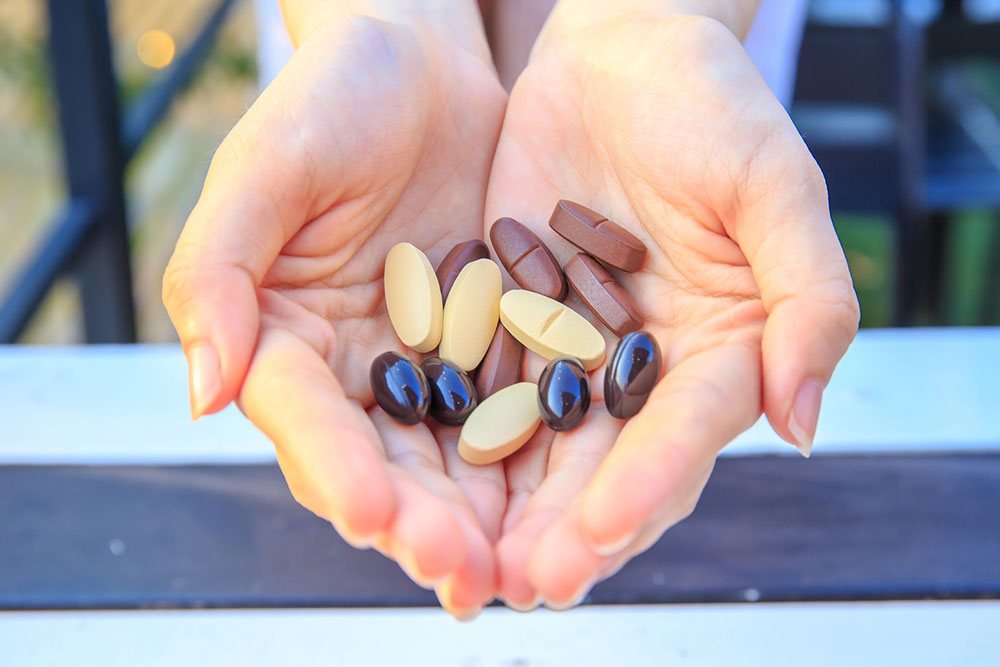
7 factors to consider when choosing multivitamins
Multivitamins contain a mix of several vitamins and minerals necessary for one’s growth, development, and well-being. When used correctly, they can help manage deficiencies in a person’s body and deal with particular health problems. For example, vitamin B7 can help with hair growth, and vitamins C, D, A, and E can nourish the skin. However, to get the best results, individuals should consider these seven critical factors when choosing multivitamins:
Personal health goals
Before choosing multivitamins, one should list the reasons why they need them. After an individual is clear about their health goals, they can pick a multivitamin that helps them reach those goals and satisfies their nutritional needs. A common health goal of many people using multivitamins is to address the nutritional gaps in their daily meals that lead to lethargy, sleep issues, fatigue, muscle cramps, etc. Such people need to purchase a multivitamin solution that helps address their nutritional deficiencies and prevent such problems. Choosing a multivitamin without knowing why one needs it is a big mistake. Picking the wrong one can increase the risk of several health complications that can be hard to manage.
Allergies
Some people develop allergic reactions after eating certain foods. For example, some people have milk allergies. This is because milk contains calcium and vitamin D, which their bodies consider a threat. Such individuals must check whether the multivitamin they buy has these elements. Sometimes, the doctor may still allow a person to consume these nutrients in multivitamin form, so individuals should consult the expert before shopping. Generally, people need to purchase multivitamins that have the nutrients they need but are devoid of other elements that may trigger allergic attacks.
Age and gender
Everyone has unique nutritional needs based on age and gender. For example, seniors need vitamin D to keep their aging bones healthy and their mobility and flexibility intact. Menopausal women require huge iron reserves in their daily meals. Children need larger reserves of protein, carbohydrates, minerals, and vitamins for their growth and development. Both children and adults with immunity-related conditions need calcium, vitamin B6, and vitamin D to avoid infections. So, individuals should consider these factors before choosing a multivitamin option.
FDA guidelines
The FDA lists rules and regulations for all food products and treatments to ensure safety. People can consume FDA-approved foods and treatments without worrying about the issues arising from adulteration or substandard ingredients. Of course, FDA rules apply to multivitamins, too. So, people must ensure the one they buy meets the FDA guidelines for food safety. Individuals should only pick options that assure buyers they are good quality and safe. People cannot afford to skip this step and buy whichever cost-effective multivitamin is on the market. Buying clinically proven and healthy multivitamins is necessary for growth and good health.
Source of ingredients
Generally, organic products are always healthier than artificial ones. So, healthcare professionals always recommend multivitamins derived from natural sources with little processing. Multivitamins that contain plant-based or animal-based ingredients instead of synthetic ones are known as food-based multivitamins. In terms of nutritional value, these multivitamins are much closer to the sources from where they have been picked. They also have a lesser risk of side effects and other health complications. Therefore, one must check whether a multivitamin is synthetic or organic and always opt for the latter. Reading the labels to find this information can take time, but it is an essential step that one cannot skip.
Presence of essential nutrients
Certain nutrients are not just needed for good health but necessary for sustaining one’s life. The absence or low quantities of these nutrients in a person’s body can cause several health problems. Some essential nutrients one should look for are:
Vitamin D: Maintains bone health, bone structure, and strong immunity
Zinc: Supports one’s immune system and helps turn carbohydrates, proteins, and fats into energy
Iron: Needed for energy and sustenance of blood circulation and other processes in the body
Folate: Supports reproductive health and boosts breast health of women
Vitamin B12: Needed for energy production, nerve health, and many other bodily processes
While these nutrients are necessary for everyone, individuals must acquire them in the right quantity. One can speak to a doctor to learn if they are deficient in these nutrients and understand the amount they need to consume daily. Getting too much of a particular nutrient can also harm one’s health.
Doctor’s approval
Even though most multivitamins do not require a doctor’s prescription for usage, consulting an expert to know the pros and cons of specific products before buying them is always helpful. Healthcare professionals know precisely how specific elements affect the body and can advise people about the right multivitamins. They can let their clients know if a given multivitamin up for question is good or bad for them. People can purchase and use the product if a healthcare expert gives their green signal for a given multivitamin. However, they should inform the expert if the multivitamin is not helping or causing other health complications. The doctor can recommend another option in such cases or suggest an alternative way to acquire the necessary vitamins.


